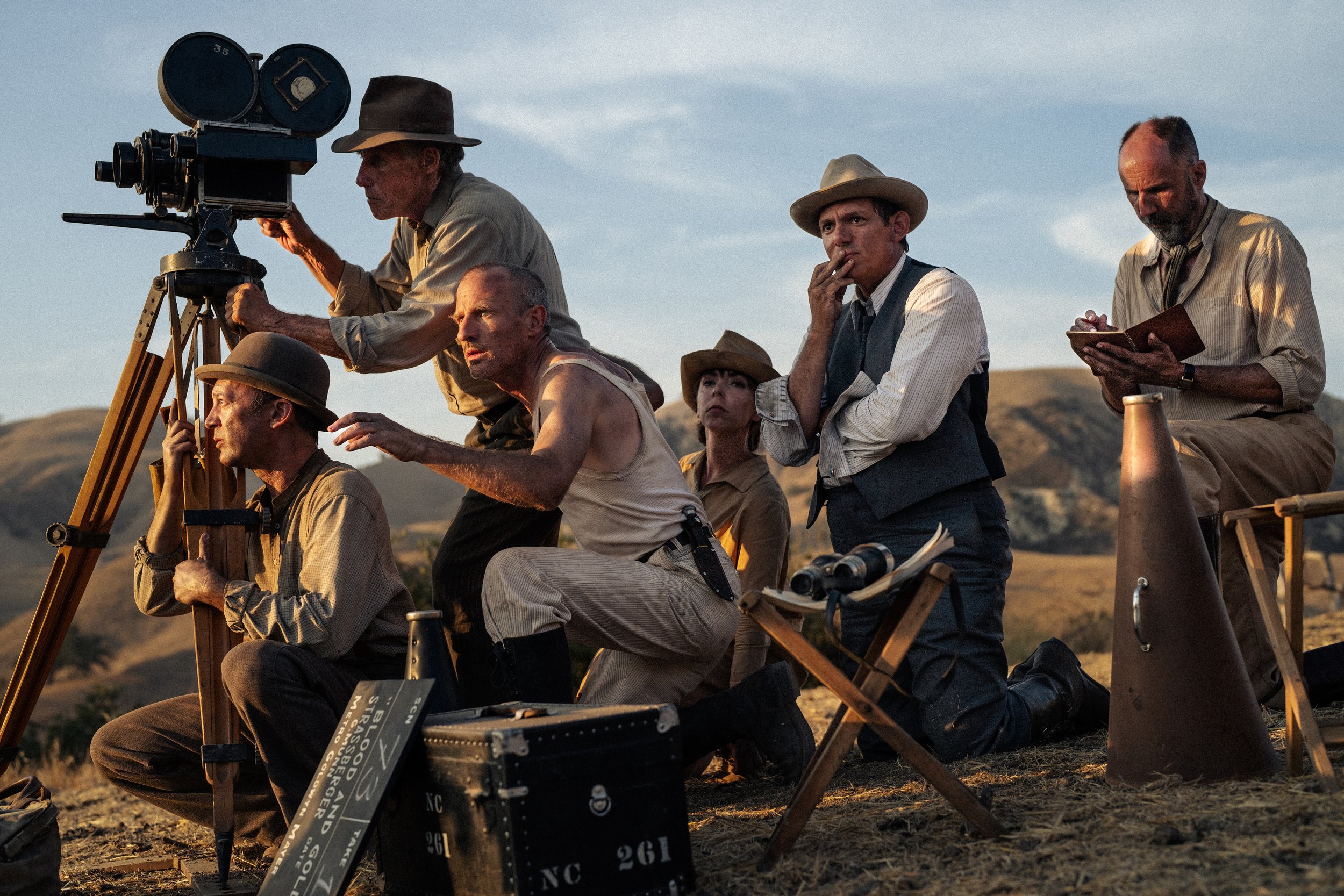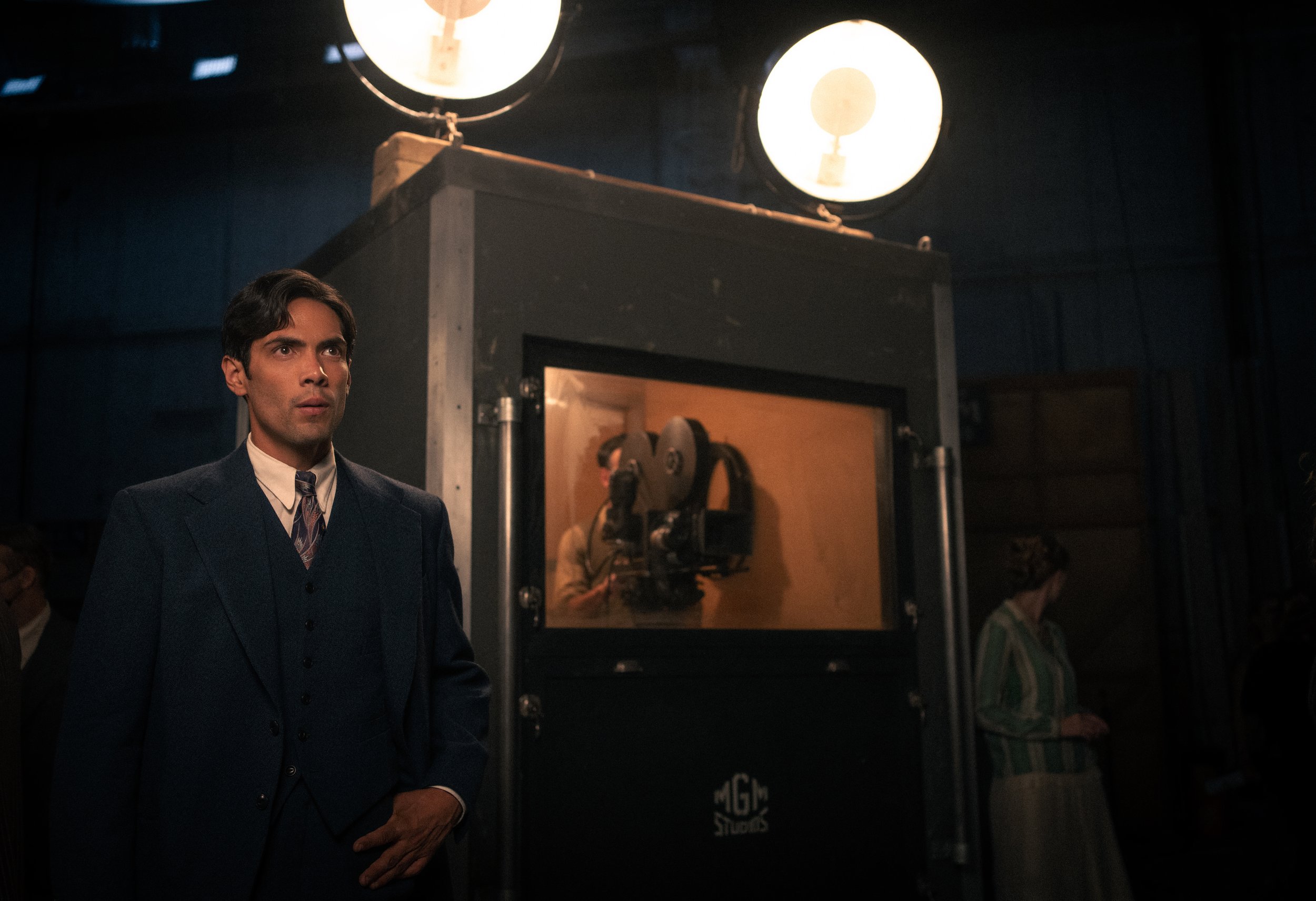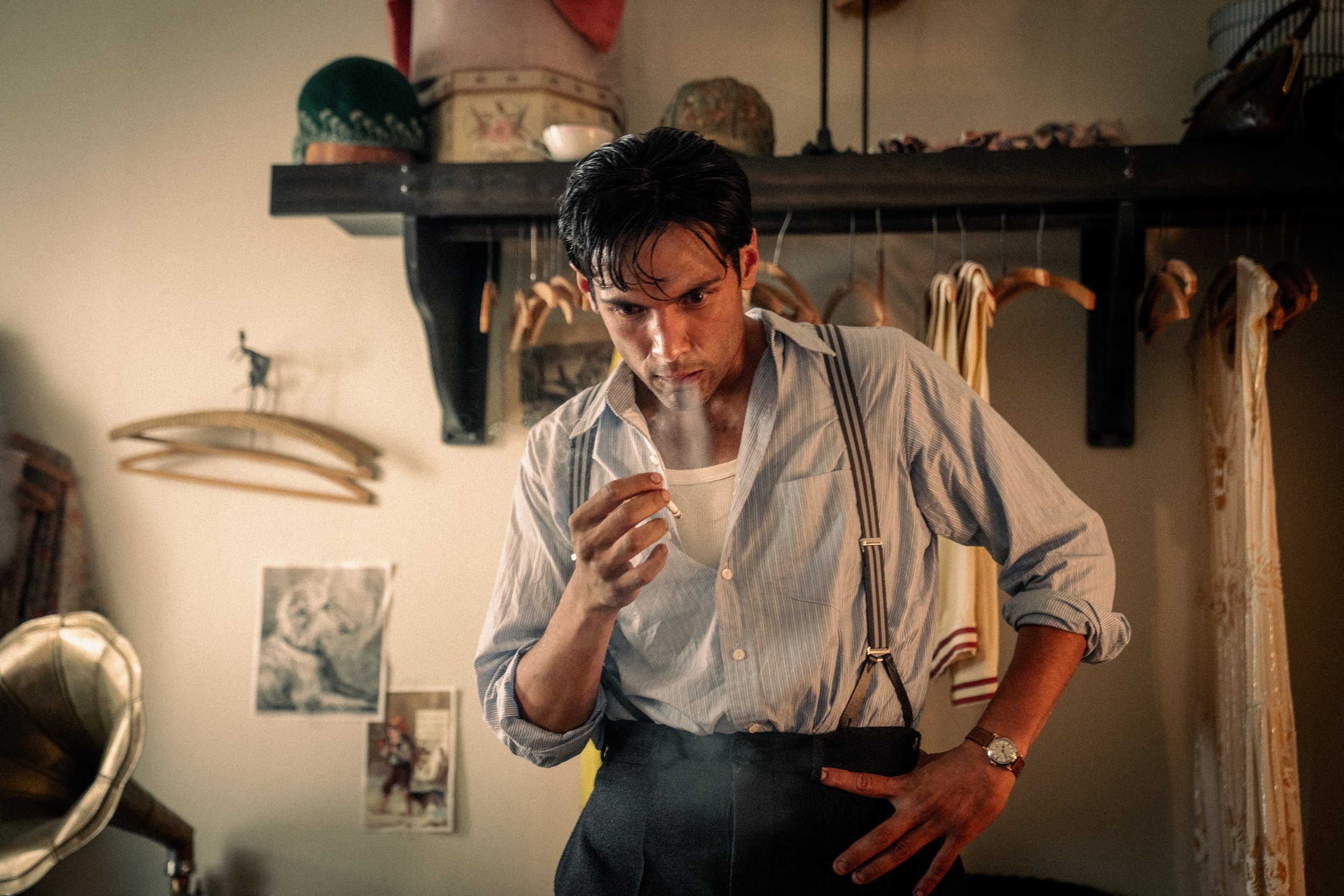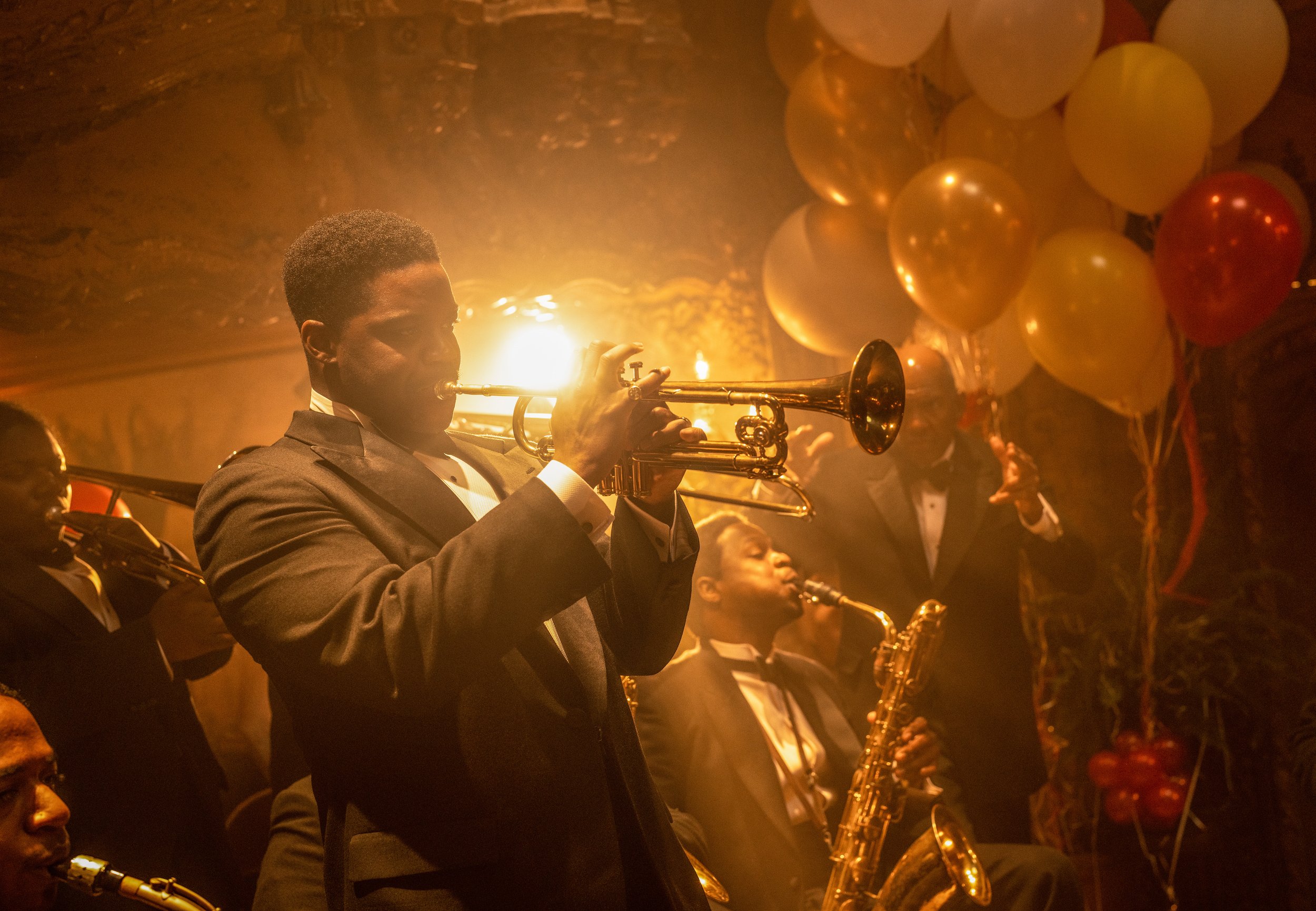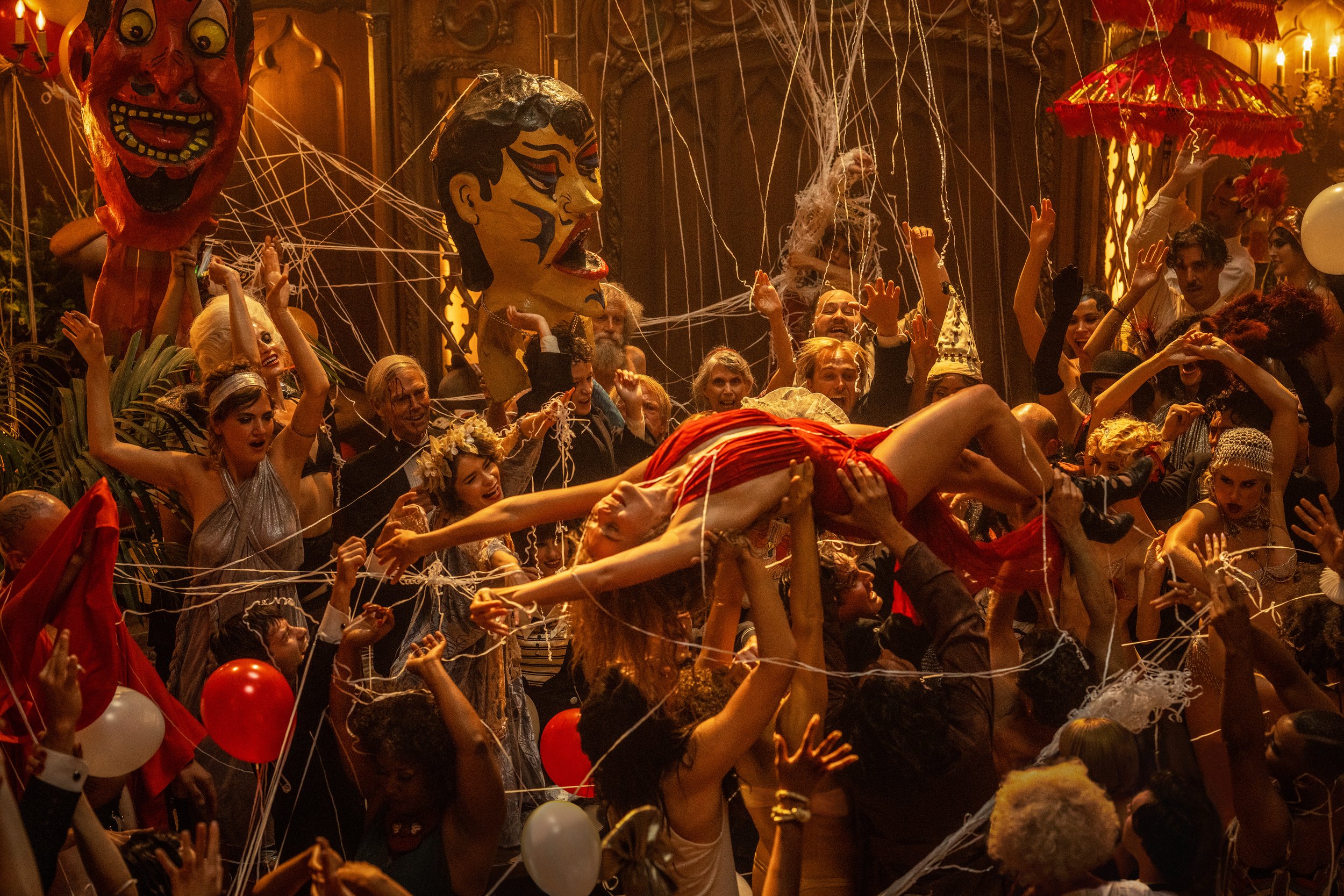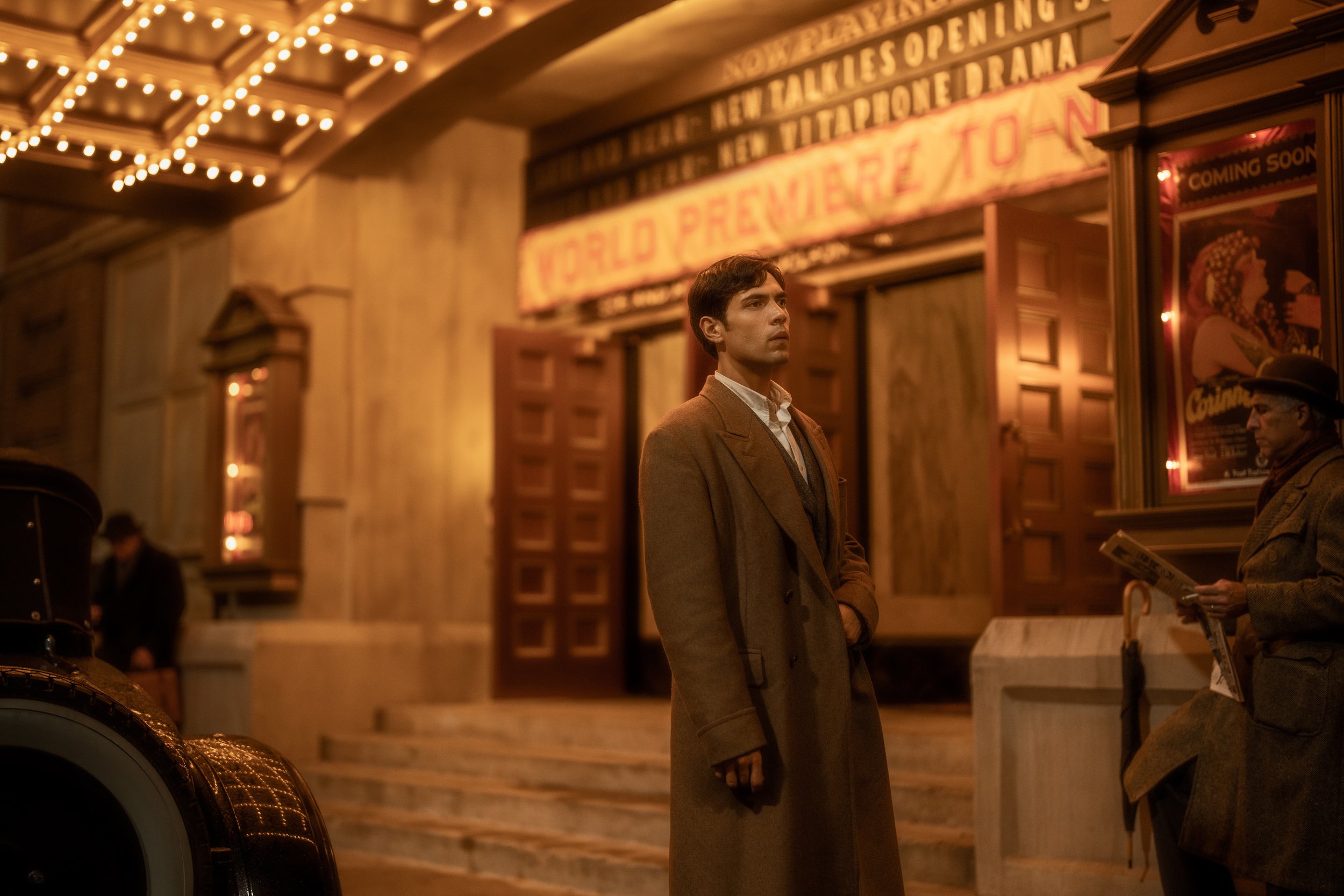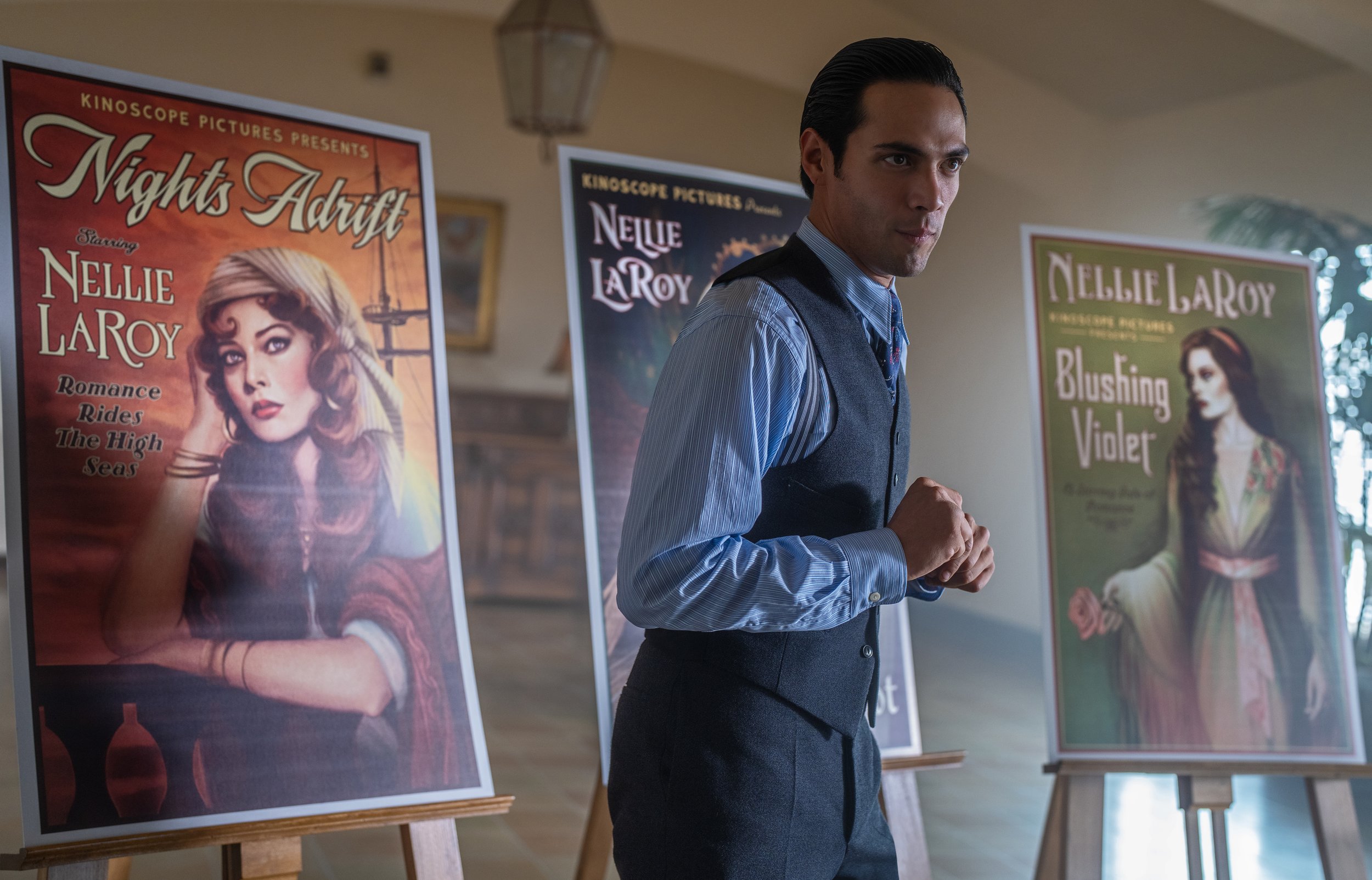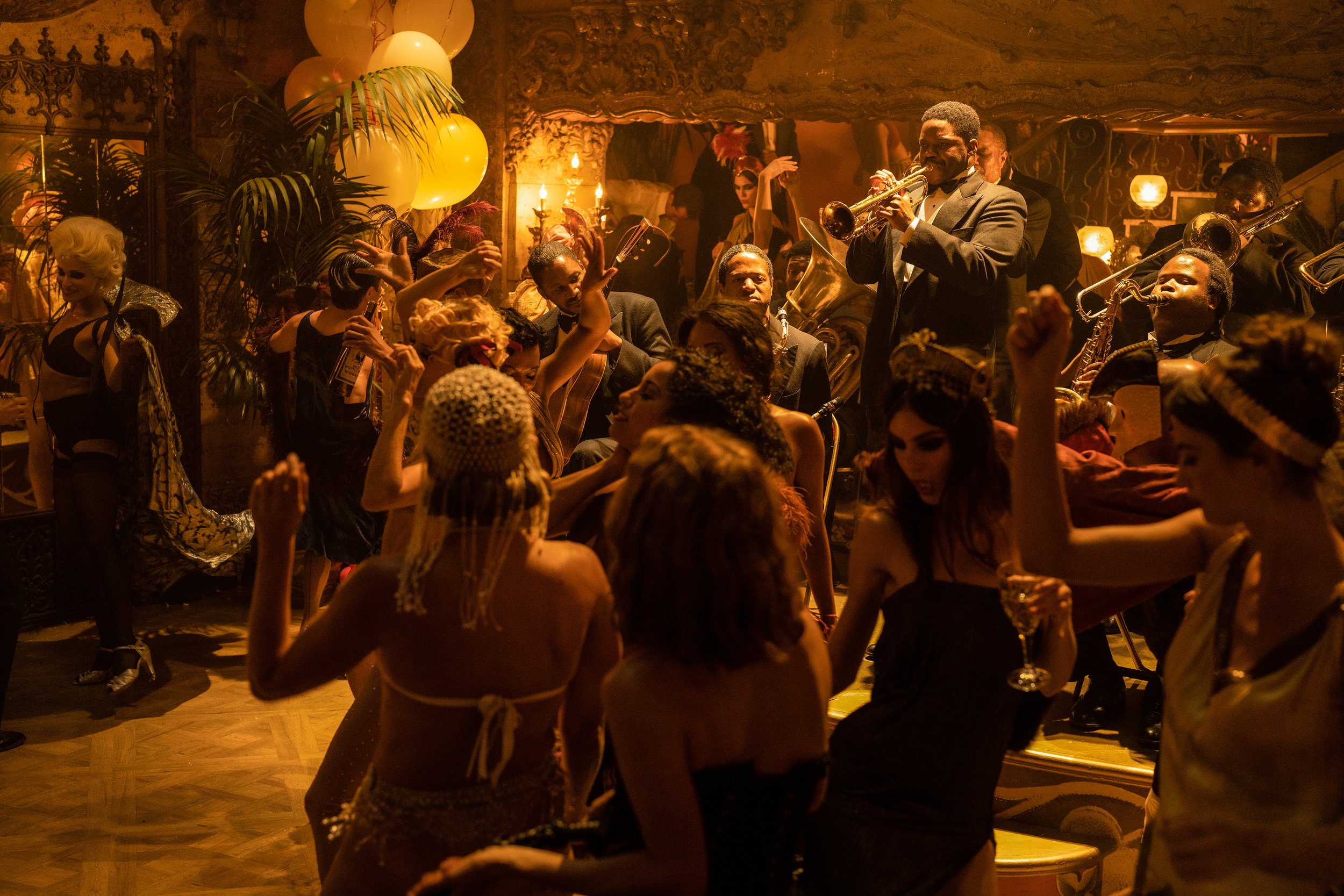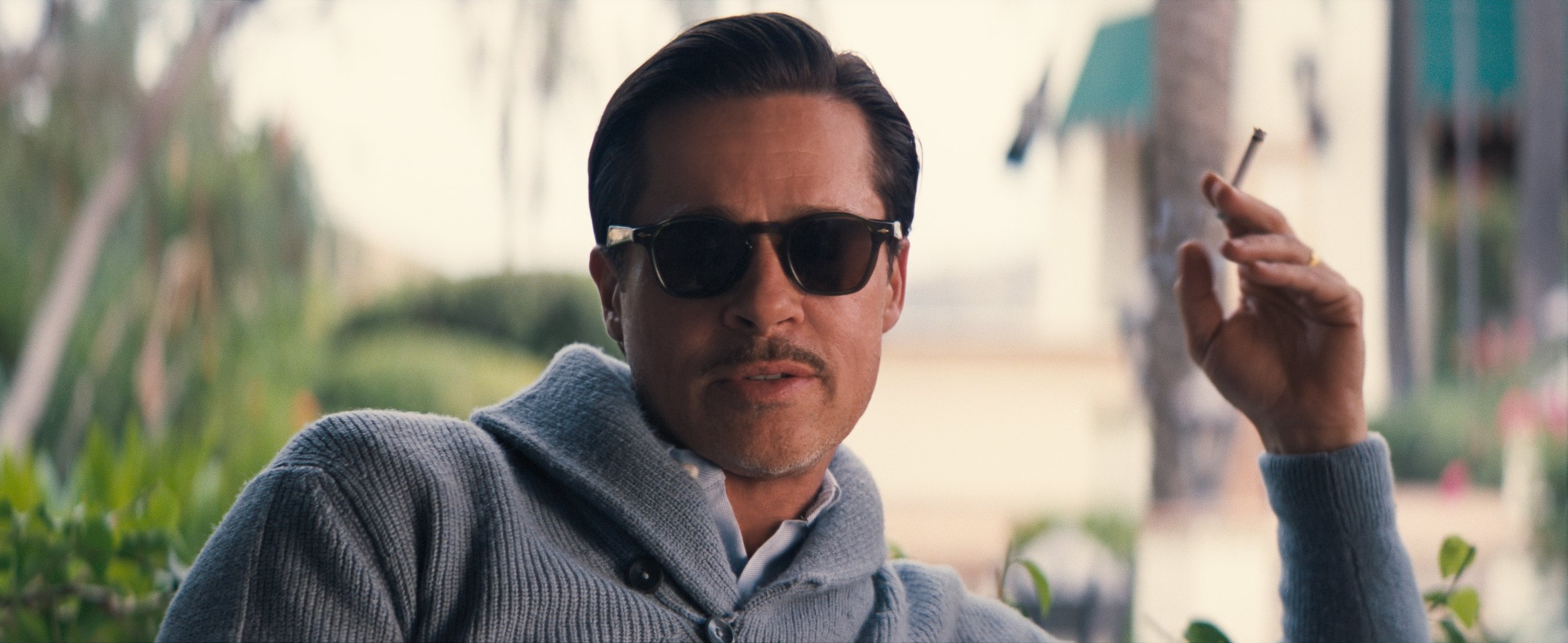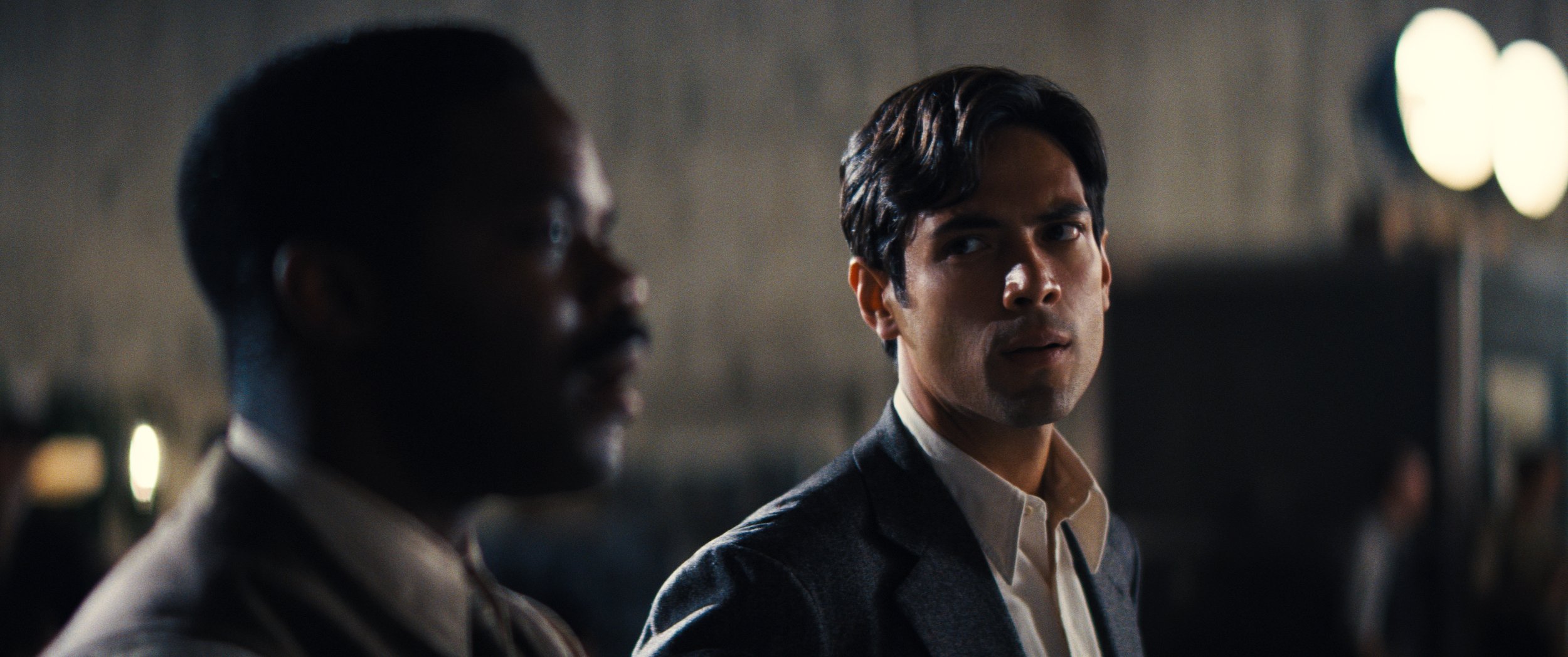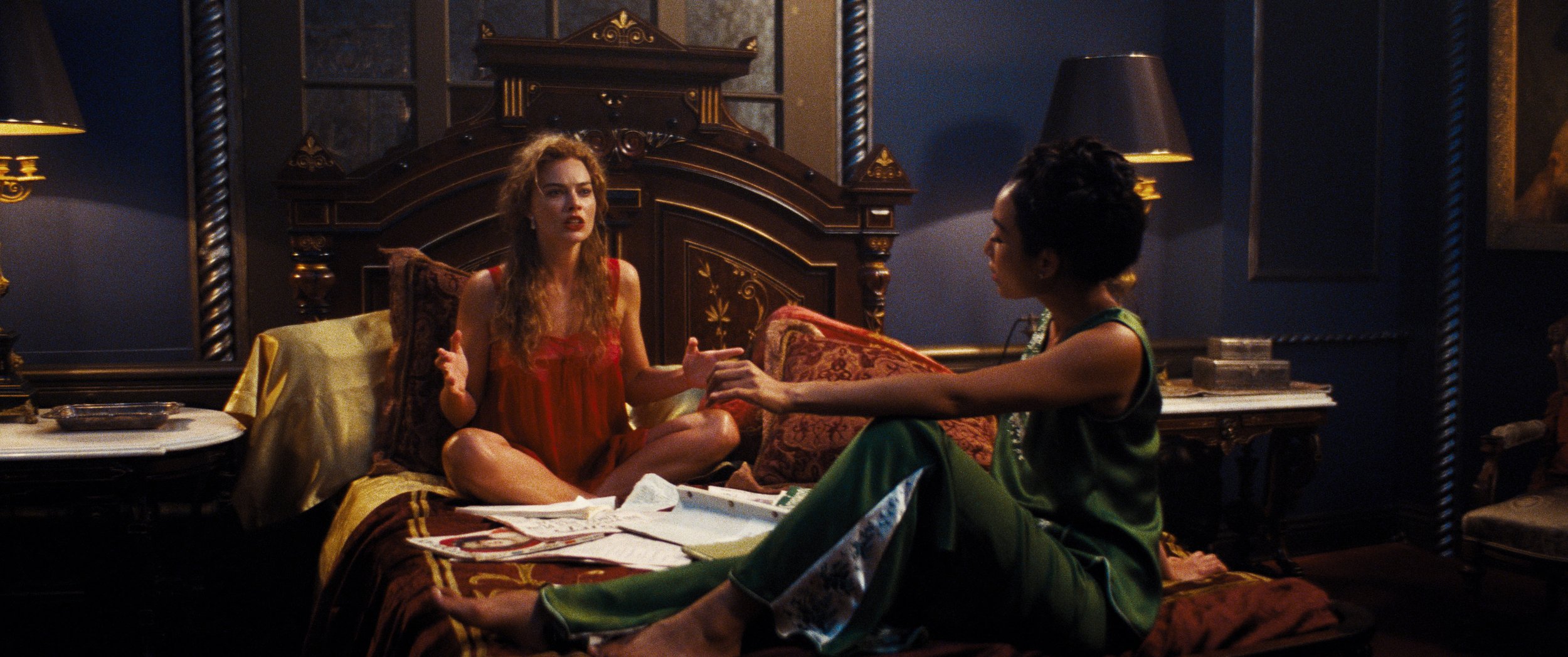MOVIE REVIEW: Babylon
BABYLON–3 STARS
Every decade of American history has its salacious sizzle, but there’s something about the 1920s that feels more powerful than all the others. The explosion of arts was exotic and new at a time of enormous immigrant growth and urban emigration. The decade’s brightness stands out as an bygone peak before two decades of economic collapse and global conflict. Between books and films, we have been given tastes and glimpses into the tawdry times of the Roaring ‘20s. Even among those entries, between timid censorship and lacking courage, no film has been daredevil enough, or deranged enough for that matter, to attempt to fully display all of the possible excesses of this volcanic era. Damien Chazelle’s Babylon barrells forward to blow down those barriers with dashing force.
Deploying the Whiplash and La La Land filmmaker’s phenomenal creative passions, Babylon overflows from every cinematic orifice with bouncy music, flamboyant production value, and vivacious performances. This is everything we’ve heard about the Roaring 20s amplified to their highest volume and shiniest polish for a fictional yarn woven into long-standing Hollywood history. For over three hours, there’s rarely an uninteresting frame, yet the challenge comes from balancing its own energy.
To get an idea of how buck wild Babylon is going to be, the first ten minutes welcome audiences to explosive elephant feces, copious nudity, and a kinky golden shower for an uproarious party that seems like just another weekend jamboree for 1926 and all involved. The movie follows Manny Torres (Diego Calva of I Promise You Anarchy), a Mexican-American underling for the Kinescope Pictures film production company trying to climb the Tinseltown ladder. He’s been tasked with trucking this bloated pachyderm to the venue. Once the band is playing, the booze is flowing, and the drugs are ingested, the soiree gets rolling where the attendees— a mix of somebodies and nobodies– meld together with lively and untethered inhibitions.
The party peaks with the crashing arrival of the penniless-but-gorgeous aspiring actress Nellie LaRoy (Oscar nominee Margot Robbie), who turns up the sweat-drenching heat in the room. Her magnetic aura catches all the eyes in the room, but none more than Manny’s and those of beloved silent film star Jack Conrad (Academy Award winner Brad Pitt). The smitten Manny takes it upon himself to become Nellie’s handler and protector, while Jack insists she and Manny join the production of his latest film. From there, the wish fulfillment fuses are lit.
LESSON #1: HOW DO YOU GET TO THE TOP– The free-spirited actress takes her exuberance to levels higher than her competitors. Likewise, Manny’s continuous resourcefulness and burgeoning eye for the filmmaking craft turns him into a studio executive. Babylon goes forward with the bulk of its time to show these meteoric rises aided by Jack’s superstardom. Their paths are never straight and fraught with celebrations, diversions, setbacks, pitfalls, and burned bridges.
Babylon also displays ancillary career paths of a few other supporting characters who have their wagons hitched to any or all of the three leads. Jovan Adepo of Fences plays Sidney Palmer, a jazz trumpeter who rises out of the house band ranks to become a minor movie star himself for Torres. Content in the background as a confidante to Jack and a stage performer with a cult fanbase is Lady Fay Zhu, played by TV actress Li Jun Li. Not unlike the marginalizing times themselves, Babylon semi-shamefully sidelines these trajectory stories of minorities which could arguably be their own fascinating (and less busy) movies.
LESSON #2: WHAT FALL AWAITS YOU– Matching a narrative much like Singin’ in the Rain’s retrospective view of the tipping point, Babylon shifts with the tumultuous industry change from silent films to talkies. That breakthrough vaulted stars and destroyed others. Pitt’s Jack Conrad is the established character teetering between success and collapse. It is a position he is starkly reminded of in a scolding monologue for the ages at one juncture by the shrewd entertainment journalist Elinor St. John, played by TV mainstay Jean Smart. Unlike the wide-eyed Nellie and Manny, he’s seen the consumption possible in Hollywood between public and not-so-public scandals. Everyone enjoying the frivolity in Babylon will have it end. It becomes a matter of when, how severely, and why.
My goodness, Babylon is energetic with kinetic activity and boundless with its capacity to hypnotize viewers with glamor. Three-time Oscar-nominated costume designer Mary Zophres drapes every dapper aristocrat and bohemian flapper with elaborate threads of numerous character-defining cuts and looks. Carrying that energy to the environments, the production design work supervised by Florencia Martin (Blonde)-- flanked by art directors and debuting set decorator Anthony Carlino– is off-the-charts for intricate style and detail. Good luck spotting the seams of any green screens.
Damien Chazelle’s most substantial collaborator remains his Oscar-winning La La Land cinematographer Linus Sandgren. The man is a downright sorcerer with the camera, bending our gaze through the most scientifically daring crane shots in the business. Even more, watch the backgrounds of Babylon filled by Chazelle’s extra players and edited by Tom Cross. Sandgren will frame his subjects perfectly while having showy mayhem and ongoing shenanigans of all sorts happening in plain view of the captured light behind the foreground. No shot is ever stale or boring.
Last, and certainly not least, in artistic excellence is Babylon’s prodigious use of music. Composer Justin Hurwitz’s musical score is the year’s best. Tthe peppy songs and jazz numbers are a narcotic all their own that could cure paralysis in the toes of the most cynical feet. Swelling further, there are snake-charming tracks that strike dramatic chords when the splendor faucets are turned down to the trickle of characters struggling to get by or longing for marque dreams.
LESSON #3: USING EXCESS TO DEPICT EXCESS– In all of this hedonistic saturation is where Babylon falters in large ways. It is very difficult to use excess to depict excess itself. At many points, the events on-screen are so zany lines are crossed for dramatic effect that threaten to turn Babylon into a satire that cannot be taken seriously. That imbalance is problematic for a movie dying to be a meaningful allegory about the inspirational magic of movies– right down to another one of Chazelle’s signature swirling ending reels where a wellspring of emotional euphoria seeks to reveal a greater total significance for the entire saga that came before it.
The question will be if any of Babylon’s characters stick with viewers more than merely enjoying the chance to witness their escapades of immorality while trying to find hearts to pin on their sleeves. Two of the leads hit their marks as expected. Brad Pitt’s ageless coolness is in its perfect groove with this square-jawed part, as is Margot Robbie’s audacious ferocity in hers. Those are not new wavelengths for them. Any layers behind those outward traits are hinted at, but not expressed their best. That leaves Diego Calva to be the necessary backbone for this glittery affair. Luckily, and channeling a young Javier Bardem, his freshness brings a strong authenticity that holds up Babylon from a full collapse of self-indulgent ignorance.
The audience’s constitution will be the deciding factor on Babylon’s wide gamut of pungent engagement and raging spectacle. This juxtaposition of the carefree and zany with the dirty and dark underneath can very easily be too much. Any twinkling enchantment is met with bracing hardness. Any gleaming art is met with harsh repulsiveness. Extend this blaring back-and-forth of lift and defeat for over three hours, and Babylon can be as exhausting and unfocused as it is impressive. Good luck coming down from that high or out of that fog.
LOGO DESIGNED BY MEENTS ILLUSTRATED (#1086)


